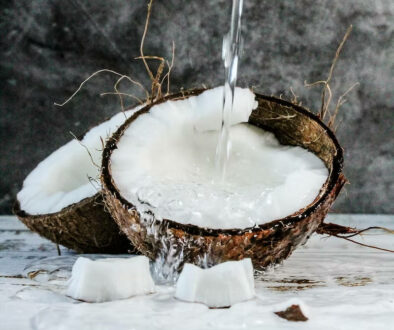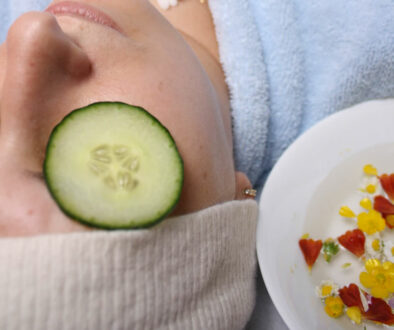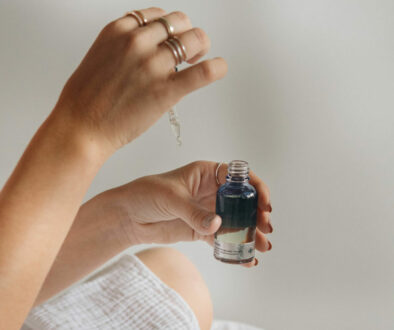Why Use Natural Skin Cleansers Over Shop-Bought?
There are many reasons to choose natural skin cleansers, especially ones that you can make on your own at home using natural ingredients from the market. It ensures that you know what goes into making them and ultimately, what goes on your skin.
Why Choose Natural Skin Cleansers
The skincare industry is a multi-billion dollar market, offering countless products that promise to cleanse, exfoliate, tone, detoxify, and rejuvenate your skin. However, many of these products contain artificial additives, harsh chemicals, and synthetic fragrances that can cause more harm than good, particularly for those with sensitive skin.
One of the reasons why a growing number of consumers are turning to natural skin cleansers as a safer, gentler alternative is the growing number of artificial additives, chemicals and synthetic fragrances used in them. More often that not, these additives can do more harm than good.

1. Avoid Potentially Harmful Ingredients
Many shop-bought skin cleansers contain parabens, sulfates, and phthalates. These chemicals act as preservatives and foaming agents but have been associated with a range of health concerns. Parabens, for example, have been linked to hormone disruption, while sulfates can cause skin irritation and dryness. Phthalates have been known to cause allergic reaction and can be absorbed into the body through the skin, inhaled or ingested as it has been detected human blood, breast milk and urine. Natural cleansers, on the other hand, often utilise plant-derived ingredients and naturally occurring substances that are generally gentler and safer for the skin.
2. Sensitive Skin Friendly
For individuals with sensitive skin, shop-bought products can often trigger irritation, redness, allergies and breakouts. Natural cleansers, made from ingredients like oatmeal, honey, or aloe vera, tend to be much milder and less likely to cause such reactions. They can cleanse effectively without stripping the skin of its natural oils or disrupting its pH balance.
3. Environmentally Conscious Choice
The production of commercial skin care products can have a significant environmental impact, from the extraction of raw materials to the energy consumed during manufacturing, to the plastic packaging that ends up in landfills.
Homemade natural skin cleansers can reduce this impact. They allow you to reuse containers, cut down on packaging waste, and avoid contributing to the pollution associated with mass production.
4. Customisation
Making your own natural skin cleanser also means you can tailor the ingredients to your skin’s specific needs. Whether you need extra hydration, have acne-prone skin, or want to brighten your complexion, you can adjust the ingredients of your homemade cleanser accordingly.
5. Economically Beneficial
Natural ingredients can often be sourced at a lower cost than high-end or even mid-range commercial skincare products. Making your own cleansers can be a cost-effective way to maintain a skincare routine.
Making the switch to natural skin cleansers from shop-bought products is a decision that can be rooted in a multitude of reasons, all of which point towards a more holistic approach to skincare that promotes both personal and environmental health.
6. Fewer Chemicals
While not all chemicals are harmful, a substantial number of commercial skin cleansers are laden with synthetic ingredients and harsh chemicals like sodium lauryl sulfate (SLS), parabens, and artificial fragrances. These can cause skin irritation, allergic reactions, and dryness.
In some cases, these substances have been linked to more serious health concerns like hormone disruption. Natural skin cleansers, conversely, use ingredients from nature that can cleanse and nourish the skin without causing harm.
7. Nutrient-Rich Skincare
Natural skin cleansers are often loaded with vital vitamins, antioxidants, and minerals. Ingredients like honey offer antimicrobial properties and antioxidants, oatmeal provides soothing effects, and olive oil contributes moisturizing fats. These natural substances can nourish the skin, promote a healthy complexion, and may contribute to long-term skin health.
8. Personalised Care
As we mentioned in the beginning, creating your own natural skin cleansers gives you control over what goes on your skin. This means you can customize a skincare product to perfectly suit your skin type and needs. Whether you have dry, oily, sensitive, or combination skin, you can select natural ingredients that cater specifically to your skin’s unique demands.
9. Eco-friendly Choice
Commercial skincare products often have a significant environmental footprint due to their manufacturing process and usage of non-recyclable plastic packaging. By opting for homemade natural skin cleansers, you’re making a more sustainable choice. This decision supports less waste, lower energy consumption in production, and a reduction in the pollution caused by plastic waste.
10. Avoidance of Artificial Fragrances
Artificial fragrances in shop-bought cleansers are a common cause of skin irritation. They can be particularly problematic for those with sensitive skin or conditions like rosacea or eczema. Natural skin cleansers can be fragranced with pure essential oils which, aside from providing a pleasant aroma, have their own therapeutic properties.
BONUS: Cost-Effective Skincare
While there’s a common misconception that natural means more expensive, in the realm of skincare this isn’t necessarily the case. Many ingredients used in homemade cleansers, such as honey, yogurt, or oatmeal, are common household items and relatively inexpensive. Therefore, making your own natural skin cleanser could potentially save you money.

Final Thoughts
However, while there are many benefits to using natural skin cleansers, it’s important to remember that they are not a one-size-fits-all solution. Natural doesn’t always mean better for everyone as not all kins react the same way to the same ingredients.. Individuals should still be cautious of potential allergies or skin reactions, and should always patch test a new product before applying it more broadly.
Also, certain skin conditions may require medically approved treatments, so always consult with a dermatologist or skincare professional if you have specific concerns or conditions. Natural cleansers should not replace medically recommended treatments offered by professional healthcare providers.











